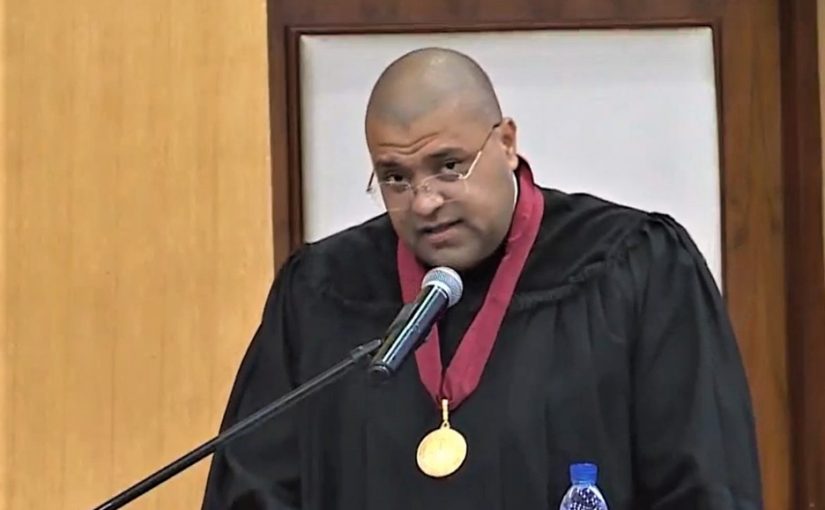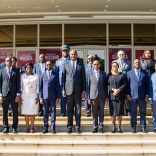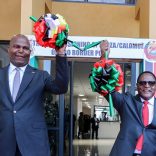Mozambique: Military escorts re-introduced in Cabo Delgado - AIM
Mozambique: ‘Time to depoliticize the CC’ – Bar Association

Photo: Notícias
The chairman of the Mozambican Bar Association (OAM) has called for an “open and urgent” discussion on the constitutional review, suggesting the inclusion of more bodies in the appointment of advisory judges to the Constitutional Council (CC).
“A frank, open and urgent discussion on the constitutional review is essential, especially regarding the method of appointing advisory judges to the Constitutional Council,” OAM president Carlos Martins declared during the opening of the 2025 judicial year in Maputo yesterday.
The Assembly of the Republic has legal coverage to appoint five of the seven judges to the CC, which it must do according to a ‘criterion of proportional representation’, with one more judge being appointed by the President of the Republic and another by the Superior Council of the Judiciary, totalling seven.
Carlos Martins advocates the inclusion of the OAM and the Superior Council of Administrative Magistracy, the Public Prosecutor’s Office and civil society in the appointment of the judges to the CC.
“It is time to depoliticize the CC, reducing the number of judges appointed by the Assembly of the Republic, allowing their appointment by other entities,” Martins argue.
For Carlos Martins, such a change in the law could “dispel” society’s distrust regarding the integrity and impartiality of democratic and judicial institutions.
Also within the framework of the constitutional review within the state reforms, the lawyers called for an end to the appointment, by the President of the Republic, of two members of the Superior Councils of Magistracy, and by parliament, which has the legal authority to appoint five to the body, justifying that these bodies are responsible for the “management, evaluation and discipline of magistrates”.
“We must definitely distance political power from the judiciary, otherwise we risk developing into a situation in which the judiciary must submit activity reports to the legislature,” said Carlos Martins.
In view of the initiative to transform the Administrative Tribunal into the Supreme Administrative Court, Carlos Martins called for the introduction of “regional intermediate appeals courts” to ensure greater procedural speed and prevent the new institution to be created from becoming a “case graveyard” given the reduced number of judges to review cases.
Martins also called for a search for “broader consensus” to put an end to the post-election crisis.
“We must abandon strictly political-partisan solutions, which are often, if not always, deliberately omissive and associated with short-term objectives. These consensuses must be transversal not only to the traditional powers of sovereignty, but also to civil society,” Martins argues.
The chairman of the Mozambican Bar Association criticized the violence during the demonstrations and indicated that the reforms underway must ensure the independence of the judiciary to guarantee respect for human rights.
“It is almost heresy to talk today in Mozambique about human dignity, with the normalization of violence, hatred and oppression (…) When there are demonstrations, the first entity to respond to the scene is the Rapid Intervention Unit (UIR) and not the political leaders, whose main function is to govern in the interests of those governed,” he noted.
Since October 21, Mozambique has been experiencing a climate of strong social unrest, protests, demonstrations and strikes, called by former presidential candidate Venâncio Mondlane, with violent clashes between the police and demonstrators, which have caused at least 315 deaths, including around two dozen minors, and around 750 people shot, according to the electoral platform Decide, a non-governmental organization that monitors the electoral processes in Mozambique.












Leave a Reply
Be the First to Comment!
You must be logged in to post a comment.
You must be logged in to post a comment.